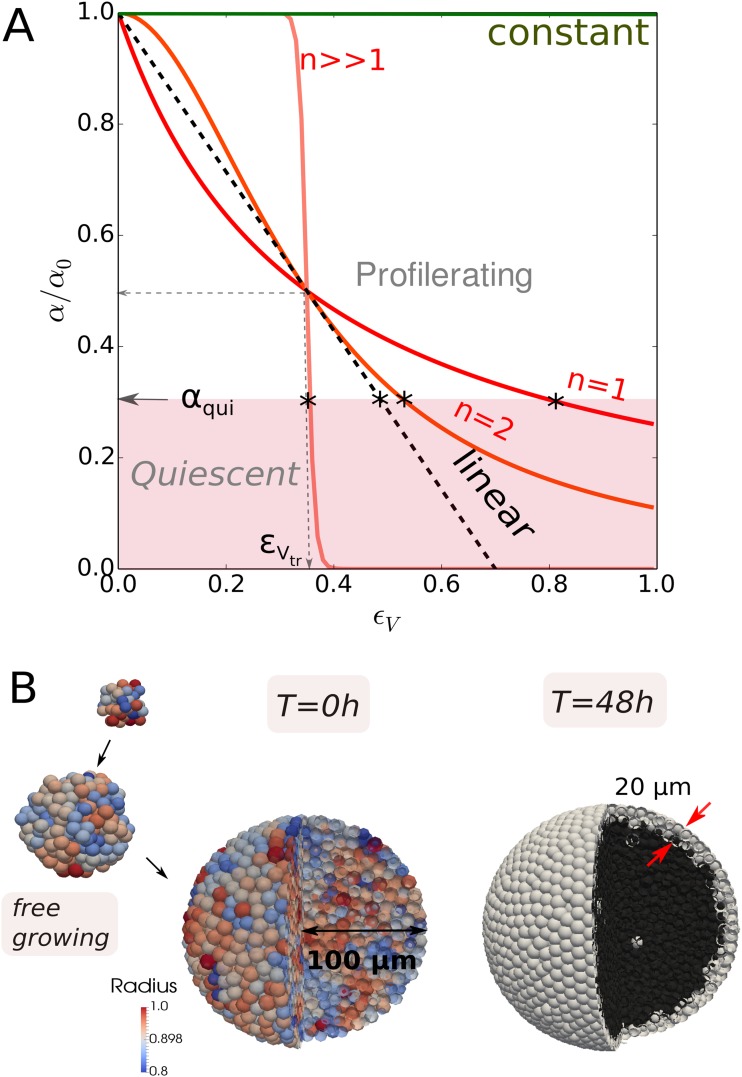Fig 3.
(A) Plot of Hill-type growth rate function as function of the volumetric strain ϵV = ϵV(p), for n = 1, 2 and a large value of n, and for a constant growth scenario ( in Eq (2)). Plot of a linear growth rate function with such that α/α0 = 1/2. Below the pink zone indicated by αqui cells become quiescent and growth stalls. In case of a sharp threshold obtained by the choice of n → ∞, any cell with would proliferate with maximal rate α = α0, while any cell with would be quiescent. For finite n, there are also proliferating cells for α < α0. The points on the growth rate curves below which the cells go into quiescence are indicated by an (*). In this work we have found that the parameter set n = 1, and αqui = 0.3 results in good fits for all cell lines. (B) simulation snapshots of a CT26 spheroid during the initial free growth, just before confinement (coloring according to cell radius), and at 48h of confinement in capsule (coloring here indicates necrotic cells (dark) and viable cells (white)).

